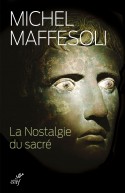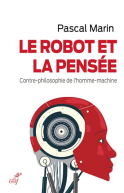
Raison et civilisation
Collection Passages
400 pages - févr. 2006
47,30€
La raison et la civilisation ont été longtemps associées comme le moyen et la fin de ce qu'on appelait naguère le progrès. Mais après les désillusions du siècle dernier, et malgré quelques courtes périodes d'optimisme, ces idées ont perdu une grande partie de leur crédibilité : l'état actuel du monde, avec ses incroyables contrastes en termes de richesses et de souffrance, suffit en effet à faire douter que la civilisation rationnelle soit un bien pour l'humanité. Le problème est cependant qu'il n'y a pas vraiment d'alternative à ce projet, car ceux qui prônent le libéralisme économique et politique aussi bien que ceux qui le dénoncent le font au nom d'une certaine conception de la civilisation rationnelle. C'est ce constat qui rend urgente une réflexion sur le sens moral de la civilisation dans les conditions du monde social contemporain, celles d'un nouvel âge libéral marqué par des concurrences extrêmes, mais aussi par une immense créativité et par une extraordinaire émancipation vis-à-vis de tous les tabous arbitraires. Pour mener cette réflexion, le présent ouvrage propose de se fonder à la fois sur quelques principes réalistes : le monde tel qu'il est n'est voulu par personne, les cultures humaines restent ancrées dans les mécanismes naturels de la vie, le travail civilisationnel de la raison ne peut être que marginal et progressif..., mais aussi sur une confiance ferme et renouvelée dans le rôle moral de la raison réflexive, la possibilité de proscrire et de faire reculer les souffrances indues et la liberté d'agir pour le mieux, que la question relève ou non de la morale.
--
Reason and civilisation have long been associated; they are the means and the end of what we used to call progress. But after the last century’s disillusionment, these ideas have lost much of their credibility, in spite of a few short spells of optimism. The state of the world today, with its extreme contrasts in terms of wealth and suffering, is enough to make us doubt that rational civilisation is a good thing for humanity. Yet the problem remains that there is no real alternative. For those who advocate economic and political liberalism, as well as those who condemn it, do so in the name of a certain concept of rational civilisation. This fact makes it urgent to reflect on the moral sense of civilisation in today’s social world, in a new age of liberalism, characterised by extreme competition but also by immense creativity and an extraordinary breaking down of all kinds of taboos. The author bases his reflection on a few pragmatic principles: no one can be happy with the state of the world today; human cultures remain anchored in life’s natural mechanisms; the civilizing work of reason can only be peripheral and gradual... But he also evokes firm and renewed confidence in the moral role of reflexive reason, the possibility to proscribe and fight against unnecessary suffering, the freedom to act for the common good, whether the question is a moral one or not.
--
Reason and civilisation have long been associated; they are the means and the end of what we used to call progress. But after the last century’s disillusionment, these ideas have lost much of their credibility, in spite of a few short spells of optimism. The state of the world today, with its extreme contrasts in terms of wealth and suffering, is enough to make us doubt that rational civilisation is a good thing for humanity. Yet the problem remains that there is no real alternative. For those who advocate economic and political liberalism, as well as those who condemn it, do so in the name of a certain concept of rational civilisation. This fact makes it urgent to reflect on the moral sense of civilisation in today’s social world, in a new age of liberalism, characterised by extreme competition but also by immense creativity and an extraordinary breaking down of all kinds of taboos. The author bases his reflection on a few pragmatic principles: no one can be happy with the state of the world today; human cultures remain anchored in life’s natural mechanisms; the civilizing work of reason can only be peripheral and gradual... But he also evokes firm and renewed confidence in the moral role of reflexive reason, the possibility to proscribe and fight against unnecessary suffering, the freedom to act for the common good, whether the question is a moral one or not.
- Dimensions : 145x235x25
- ISBN : 9782204078931
- Poids : 584 grammes







